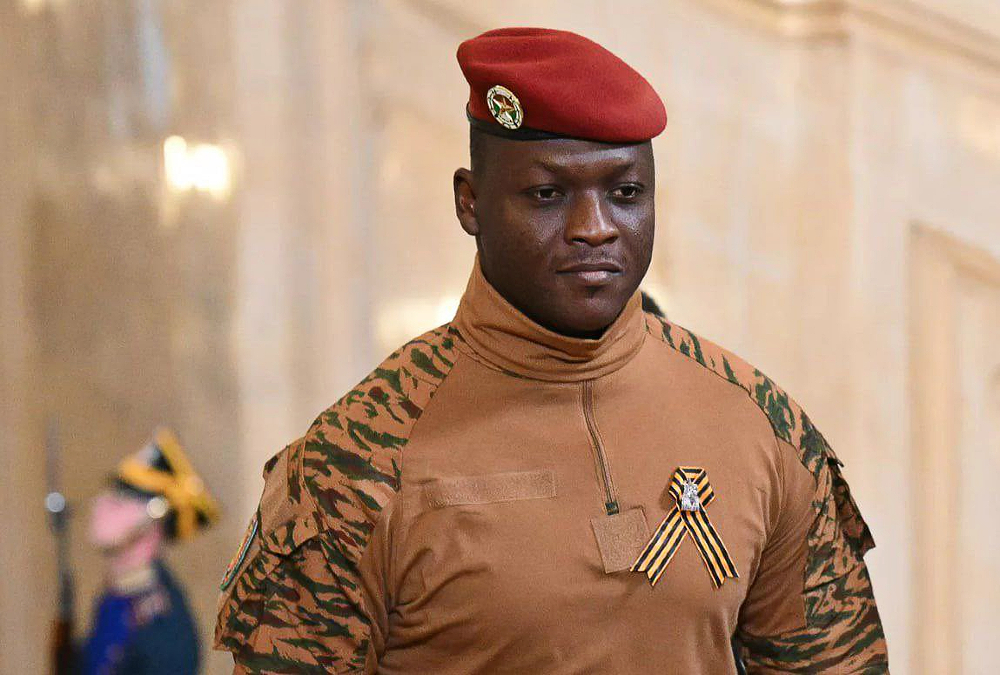Capt Ibrahim Traoré: Why Burkina Faso’s Junta Leader Has Captured Hearts and Minds Around the World
At just 37 years old, Capt Ibrahim Traoré has emerged as a significant figure in Burkina Faso, cleverly crafting an image of a pan-Africanist leader aimed at liberating his nation from what he perceives as Western imperialism and neo-colonialism. His stirring messages resonate across the African continent, drawing parallels with iconic figures such as Thomas Sankara, a revolutionary martyr from Burkina Faso, known as “Africa’s Che Guevara.”
Beverly Ochieng, a senior researcher at Control Risks, remarked, “Traoré’s impact is huge. In countries like Kenya, there are voices saying, ‘This is the leader we need.’ His message echoes the current sentiment among many Africans questioning long-standing ties with the West and the persistent poverty in a resource-abundant continent.”
Post-Coup Dynamics
Since his coup in 2022, Traoré has pivoted away from France, Burkina Faso’s former colonial power, and strengthened ties with Russia. His administration has adopted leftist economic policies, including the establishment of a state-owned mining corporation that mandates foreign companies to allocate a 15% stake to Burkinabé stakeholders and share technological expertise. A prime example of this is the recent licensing of Russian mining company Nordgold to operate in Burkina Faso’s gold sector.
In an attempt to harness the nation’s mineral wealth, Traoré has initiated the construction of a gold refinery and established national gold reserves for the first time. Meanwhile, Western companies have faced challenges; Sarama Resources from Australia has initiated arbitration against the Burkinabé government after losing an exploration license, while the junta has nationalized two gold mines previously controlled by a London-based enterprise.
Popular Appeal Amidst Dissent
Traoré’s radical reforms have significantly boosted his popularity, with observers like Enoch Randy Aikins from the Institute for Security Studies suggesting he is now one of Africa’s most popular leaders. Aiken stated, “He is young in a nation with a youthful demographic, and he effectively harnesses media, presenting himself as a reincarnation of Sankara.”
Social media has played a crucial role in maintaining his presence, often featuring misleading content to enhance his revolutionary image. His stirring address at the 2023 Russia-Africa summit, where he urged African leaders to cast off the yoke of imperialist oppression, gained traction, particularly in Russian media, further cementing his pan-Africanist image.
| Key Initiatives | Description |
|---|---|
| State-Owned Mining Company | Requires 15% local stake and technology transfer from foreign mining companies. |
| Gold Refinery Construction | Initiating a refinery and establishing national reserves for the first time. |
| Nationalization of Mines | Took control of two gold mines previously held by a London-listed company. |
Challenges and Criticisms
Despite his rising popularity, Traoré faces significant challenges, particularly regarding his commitment to combat a decade-long Islamist insurgency that has exacerbated ethnic tensions and spilled over into neighboring countries. His government has been accused of suppressing dissent and attacking media freedom, punishing various critics, including health professionals, by assigning them to frontline positions in the ongoing conflict against jihadist groups.
Internationally, leaders like French President Emmanuel Macron have criticized Traoré, branding him part of a “baroque alliance” that includes neo-imperialists. This growing friction with the West, alongside his rhetoric and state-driven reforms, resonates particularly well with younger populations disillusioned by traditional democracy and the promises it has failed to deliver.
As Burkina Faso navigates a complex and transformative period, Traoré’s ability to maintain his support while addressing the socio-economic conditions of his country will prove pivotal in determining his legacy. Ultimately, he must work to establish an enduring governance framework rather than personalizing power amidst ongoing turmoil.


